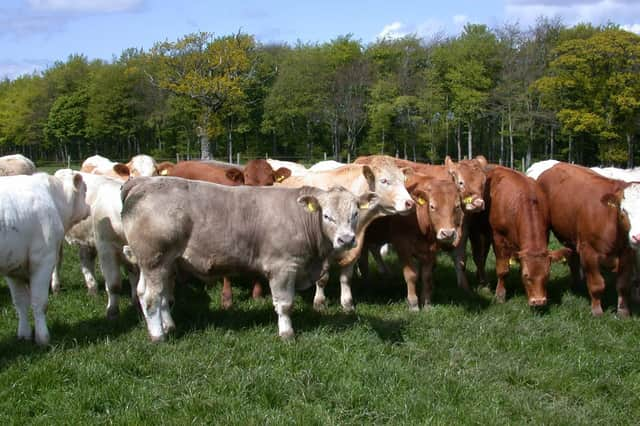Cattle movements between NI and GB restricted due to EU law - Allister


A number of NI farmers who purchased livestock in Great Britain have had to pay to keep the animals on the mainland because they can’t bring them across the Irish Sea.
The UK no longer has a ‘blue tongue free’ status because of an outbreak in the south of England. It is a livestock disease which is spread in the warmer months.
Advertisement
Hide AdAdvertisement
Hide AdBut despite that outbreak, there are no restrictions on livestock movement within Great Britain – but there is between Great Britain and Northern Ireland.
The News Letter has seen correspondence from UK biosecurity officials which claims that there may be negotiations ongoing with the EU over the issue.
But DEFRA – the UK farming ministry – won’t be drawn on why Northern Ireland is treated differently. They will only say that it “reflects the longstanding and important arrangements we have in place to protect animal health and biosecurity in Northern Ireland”.
TUV leader Jim Allister says it is clearly because of Protocol legislation.
Advertisement
Hide AdAdvertisement
Hide AdHe told the News Letter: “This week alone I have had contact from further farmers who purchased animals in GB who are unable to bring them to NI. On this occasion it is the EU’s rules on exports from countries which do not have blue tongue free status.
“Blue tongue is a non-contagious, insect-transmitted, viral disease of domestic and wild ruminants, affecting mostly sheep and cattle. Being insect transmitted it is most prevalent in warmer climates including mainland Europe and southern England. Particularly at this time of year there is no prospect of transmission within NI.
Mr Allister says the laws became applicable on 21 April 2021 under Art 5 of the Protocol “and is listed in Annex 2 with the hundreds of other EU laws still applying to NI”.
He said: “Whereas an outbreak in south east England last summer caused GB to be denied blue tongue free status, movements within GB are permitted but not to NI because we continue to be under EU law.
Advertisement
Hide AdAdvertisement
Hide Ad“As clear from DEFRA website you must apply for an Export Health Certificate (EHC) if you’re exporting or moving live animals or animal products from Great Britain (England, Scotland and Wales) to, or through, Northern Ireland, because of EU rules.
“You also need an EHC to export live animals and animal products from Northern Ireland to GB, but not to the EU.
“So, what this amounts to is that you can move animals from Devon to the Hebrides, or anywhere within GB, but not to NI, because EU diktat forbids it. Meanwhile farmers who have bought animals in GB are having to pay for their keep across the water at prohibitive cost.
A DEFRA spokesperson said: ““Following confirmation of Bluetongue in non-imported animals in England, the UK may no longer be considered as a bluetongue-free country. To protect the biosecurity status of Northern Ireland, the movement of susceptible livestock from Great Britain has been stopped whilst epidemiological investigations are ongoing. This reflects the longstanding and important arrangements we have in place to protect animal health and biosecurity in Northern Ireland.” They did not respond when asked if it requires the approval of the EU to allow the resumption of the movement of livestock.
Comment Guidelines
National World encourages reader discussion on our stories. User feedback, insights and back-and-forth exchanges add a rich layer of context to reporting. Please review our Community Guidelines before commenting.